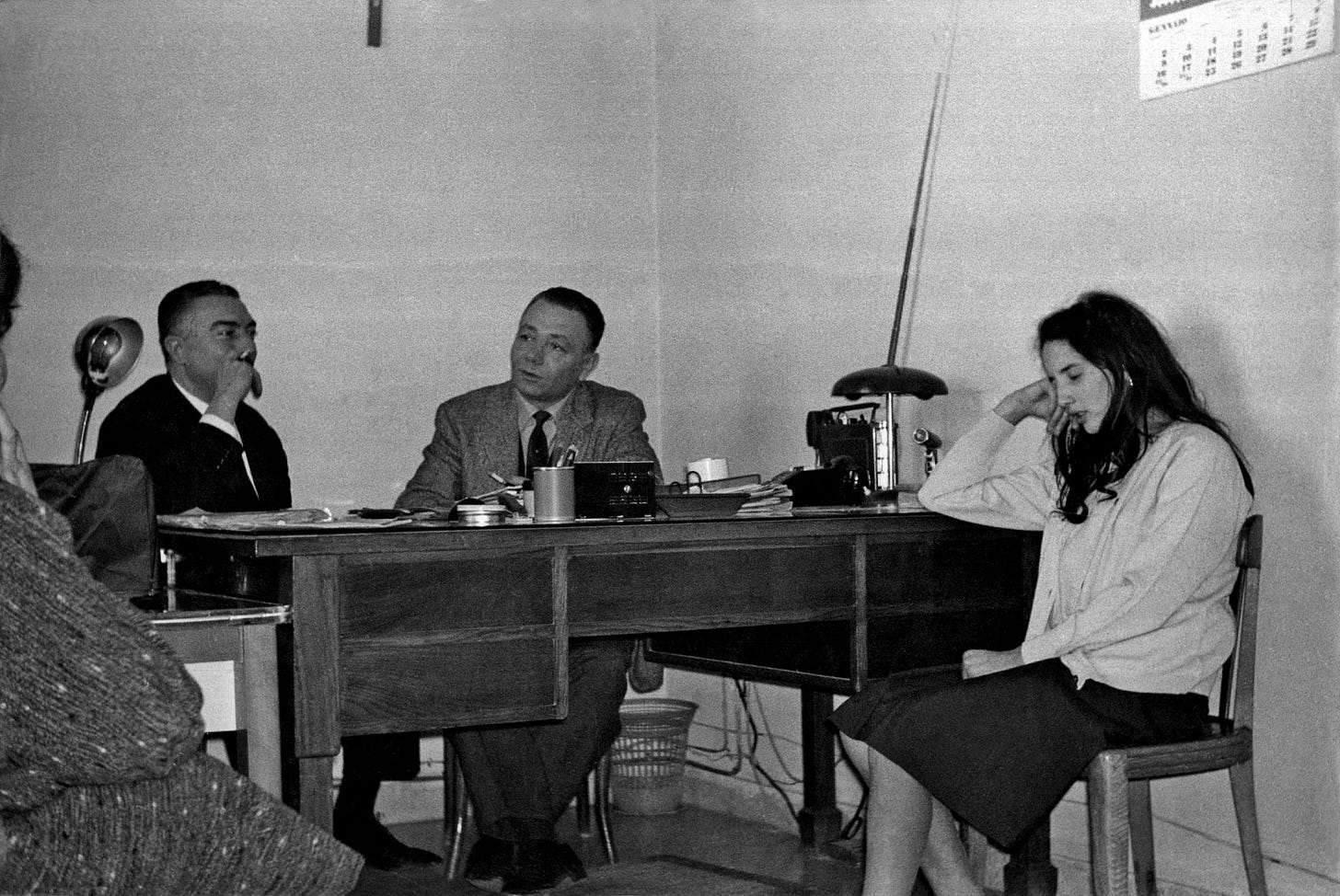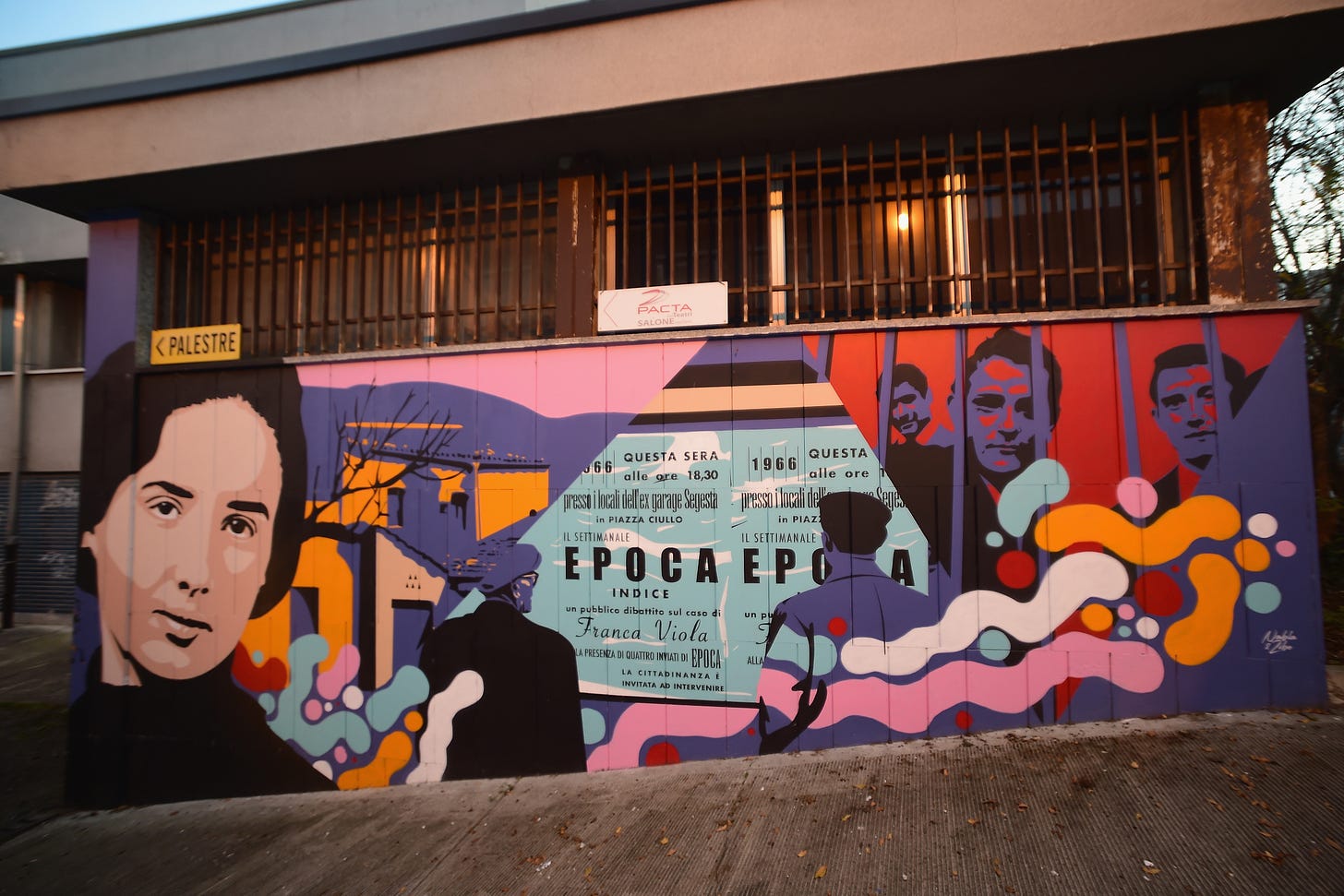Franca Viola, the Fearless Woman Who Refused to Marry Her Rapist
In 1966, Franca Viola became the first Italian woman who refused to marry her rapist to ‘uphold’ her family’s honor. Her statement became a rallying cry for other women to follow suit.
Franca Viola Was a Trailblazer
“I do not love you, I will not marry you.”
In modern times, the above sentence from any girl would hardly evoke any response or even raise eyebrows. But in the mid-1960s, it was considered blasphemy of the highest order in Italy, where honor and respect had been engrained and deeply rooted in the minds of the Italian people for generations. Opposing these traditions would result in absolute shame for the person and their family.
Franca Viola was a trailblazer. In 1966, Franca Viola became the first Italian woman who refused to marry her rapist to ‘uphold’ her family’s honor. Her statement became a rallying cry for other women to follow suit. Franca not only took her rapist to court but also won the case against all odds managing to put her perpetrators behind bars for 11 years.
In 1970, Italian director Damiano Damiani immortalized Franca Viola in celluloid by creating the movie The Most Beautiful Wife, starring Ornella Muti. Her case also led to important changes in the Italian legal system and paved the way for equal rights for women.
Later in life, when Franca was asked what made her take this courageous step, she simply said.
“It was not a courageous gesture. I only did what I felt I had to do, as any other girl would do today. I listened to my heart.”
The Sicily of the 1960s Was Very Regressive
In the 1960s, Sicily was a regressive place for women with many archaic traditions and honor-obsessed families.
And one such custom was the ‘fuitina’, a Sicilian word for ‘elopement' that had long been practiced in the South. In this custom, a couple wanting to marry would elope from their houses for a day. Once they return, the girl’s parents would have no options except to marry her to her suitor as matrimonio riparatore (‘rehabilitating marriage') to save her reputation and the family’s honor.
But there was a much darker side to this picture that involved kidnapping girls and making them unwilling victims in this practice.
If she had spurned or rejected him previously, her suitor would kidnap and rape her and then rely on the matrimonio riparatore to protect him from being convicted of kidnapping or rape. This was possible because, under Article 544 of the Italian Criminal Code, an accusation of sexual violence would lapse if the perpetrator married his victim.
And to make matters worse, the girl who gets raped gets all the blame and the humiliation for the crime, and she has no option except to submit to such a kind of marriage to save the family’s honor. No girl dared to refuse because refusing meant the girl to be labeled as una donna svergognata (‘a shameless hussy'). In other words, a girl had neither any right nor any respect.
The Story of Franca Viola
Franca was born on 9 January 1948 to a family of farmers in Sicily. At 15, she became engaged to a local boy Filippo Melodia, the nephew of a local mafioso. When Melodia was arrested for theft later, Franca broke off the engagement. Melodia managed to escape punishment and left the country.
Melodia returned two later and begged Franca to accept him back, stating he had mended his ways. Franca refused. He stalked and threatened her. Nevertheless, she resisted. This angered Melodia, and he planned to take revenge on her for her ‘audacity,’ as he called it.
Two days later, Melodia and his gang of goons stormed into the Viola family farmhouse and kidnapped Franca. They took her to a remote farmhouse where Melodia raped Franca repeatedly. He told her later that she would have to marry him, so she would not ‘dishonor’ her family.
Franca was released, and as expected, Melodia offered Viola a matrimonio riparatore to restore her honor and that of her family.
Unexpectedly Franca refused. Not only that, but with the firm support of her family and friends, she pressed ahead with taking her attacker to court for kidnapping, carnal violence, and intimidation.
Franca Viola was the first woman to ever reject a reparatory marriage in public, which created serious repercussions for her and her family. She was labeled as a donna svergognata or a woman without honor. Her family received death threats. Their vineyards and cottage were burned.
Franca Viola Wins the Battle
The trial was a sensation in Sicily and across the world. It triggered uncomfortable debates among the populace, with people questioning the very archaic systems that were so unfair to women. Crowds flocked to debates about the trial, which was also covered by The New York Times.
Melodia’s lawyers tried every trick in the book, from maligning Franca’s character to a ‘willing’ participant in the crime to buying and threatening witnesses with money and violence. Viola continued her fight with quiet dignity, stating, “I will marry the man I love.” Newspaper reports described her as ‘gentle’ and ‘heroic’ as her firm resolution transformed her into a feminist icon.
In May 1967, Melodia was found guilty and sentenced to 11 years in prison.7 of his accomplices received four-year sentences. Melodia was released from prison in 1976 and banished from Sicily. He was later murdered in Modena two years later.
In 2014, Franca Viola was awarded the title of Grande Ufficiale dell’Ordine al Merito Della Repubblica by Italian president Giorgio Napolitano in a public ceremony to mark International Women’s Day.
Today she resides in Sicily with her husband, two sons, and grandchildren. She is an international icon for women’s rights, a woman of substance who liberated other women so they also could say ‘no' against all odds, threats, or shame. Hats off to her!
Sources
· Franca Viola, the woman who defied the Italian tradition by refusing to marry her rapist, 1966
· A Brave Young Woman Fought a Centuries-old Cruel Sicilian Tradition and Won
· Franca Viola and the battle against La Fuitina
· FRANCA VIOLA, THE WOMAN WHO SHATTERED YEARS OF PATRIARCHY
· Franca Viola – The Girl who Listened to her Heart
· Franca Viola says ‘No’: Gender violence, consent, and the law in 1960s Italy







